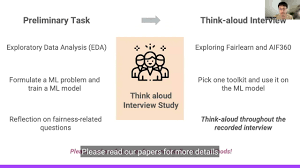
Exploring the Versatility of Machine Learning Toolkits
The Power of Machine Learning Toolkits
Machine learning toolkits have revolutionized the way we approach data analysis and predictive modelling. These powerful tools provide developers and data scientists with a wide range of functionalities to build, train, and deploy machine learning models efficiently.
One of the key advantages of using machine learning toolkits is the accessibility they offer to individuals with varying levels of expertise. Whether you’re a seasoned data scientist or a beginner looking to explore the world of machine learning, these toolkits provide a user-friendly interface and comprehensive documentation to support your journey.
Machine learning toolkits often come equipped with pre-built algorithms, data preprocessing techniques, and model evaluation tools, allowing users to focus on experimenting with different approaches rather than reinventing the wheel. This streamlines the development process and enables quick prototyping of machine learning solutions.
Furthermore, machine learning toolkits are designed to handle large datasets efficiently, leveraging parallel processing and optimised algorithms to speed up model training. This scalability is essential for tackling complex problems that require processing vast amounts of data in a reasonable timeframe.
Moreover, many machine learning toolkits are open-source, fostering collaboration within the data science community. Developers can contribute to the improvement of existing tools or create new extensions that cater to specific use cases. This collaborative environment accelerates innovation and drives continuous improvement in machine learning technologies.
In conclusion, machine learning toolkits play a vital role in democratising access to advanced analytics capabilities and empowering individuals to leverage the power of machine learning in their projects. Whether you’re exploring predictive modelling for the first time or looking to enhance your existing skills, these versatile tools offer a gateway to unlocking the potential of artificial intelligence.
Understanding ML Toolkits: Key Questions Answered
- What is ML toolkits?
- What are ML tools for data science?
- What are ML frameworks?
- Which tools are used for machine learning?
What is ML toolkits?
A machine learning toolkit, often referred to as an ML toolkit, is a software package or library that provides a collection of tools and resources for building, training, and deploying machine learning models. These toolkits offer a range of functionalities, such as pre-built algorithms, data preprocessing techniques, and model evaluation tools, to support developers and data scientists in their machine learning projects. ML toolkits are designed to streamline the development process and make it more accessible to users of varying expertise levels by providing a user-friendly interface and comprehensive documentation. By leveraging the capabilities of ML toolkits, individuals can explore the world of machine learning and experiment with different approaches to data analysis and predictive modelling effectively.
What are ML tools for data science?
Machine learning tools for data science encompass a diverse range of software packages and libraries that facilitate the development and deployment of machine learning models for predictive analytics and data-driven insights. These tools provide data scientists with the necessary resources to preprocess data, build and train models, evaluate performance metrics, and deploy solutions in various applications. From popular libraries like scikit-learn and TensorFlow to comprehensive platforms such as Microsoft Azure Machine Learning Studio, ML tools for data science offer a robust ecosystem to support the end-to-end machine learning workflow, empowering users to extract valuable knowledge from complex datasets efficiently.
What are ML frameworks?
Machine learning frameworks, often referred to as ML frameworks, are comprehensive software libraries that provide a set of tools and functionalities for developing machine learning models. These frameworks offer a structured environment for building and training models, implementing algorithms, and evaluating model performance. By abstracting complex processes and providing pre-built components, ML frameworks streamline the development process and enable data scientists to focus on the creative aspects of model building rather than low-level implementation details. Popular ML frameworks include TensorFlow, PyTorch, and scikit-learn, each offering unique features and advantages for different types of machine learning tasks.
Which tools are used for machine learning?
In the realm of machine learning, a multitude of tools are employed to facilitate the development and deployment of predictive models. Some commonly used tools for machine learning include popular frameworks like TensorFlow, PyTorch, and scikit-learn, which offer a wide range of algorithms and functionalities for building robust machine learning models. Additionally, tools such as Keras, Apache Spark MLlib, and Microsoft Cognitive Toolkit provide developers with diverse options to experiment with different approaches to data analysis and model training. Each tool brings its unique strengths and capabilities to the table, catering to a variety of use cases and preferences within the ever-evolving landscape of machine learning technologies.
